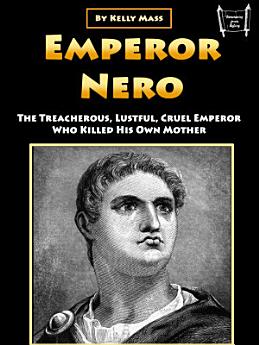Emperor Nero: The Treacherous, Lustful, Cruel Emperor Who Killed His Own Mother
About this ebook
Born in AD 37 in the coastal town of Antium, Nero was the son of Gnaeus Domitius Ahenobarbus and Agrippina the Younger, a great-granddaughter of Emperor Augustus. His father died when he was only two years old, and his mother soon remarried, securing a position of influence at the imperial court. When Agrippina married Emperor Claudius, she maneuvered to have her son adopted as his heir, ultimately sidelining Claudius’ biological son, Britannicus. Following Claudius’ suspicious death in AD 54—widely believed to have been orchestrated by Agrippina—Nero ascended the throne with the backing of the Senate and the powerful Praetorian Guard.
In the early years of his reign, Nero was heavily influenced by a triad of advisers: his ambitious mother Agrippina, the philosopher and statesman Seneca the Younger, and the Praetorian prefect Sextus Afranius Burrus. Initially, the empire benefited from their guidance, as Nero enacted policies that were generally seen as moderate and pragmatic. However, as he grew older, he sought to rule independently, resenting the influence of his mother. This struggle culminated in Agrippina’s assassination, ordered by Nero himself. He did not stop there—his reign was marked by a series of brutal purges, including the suspected poisoning of Britannicus and the execution of his first wife, Claudia Octavia, to make way for his new love, Poppaea Sabina. After Poppaea’s sudden and mysterious death, Nero remarried the aristocratic Statilia Messalina, while also engaging in controversial relationships, including a symbolic marriage to a freedman, Pythagoras, in which Nero took on the role of the bride, and another with the eunuch Sporus, whom he had castrated and treated as his wife.







